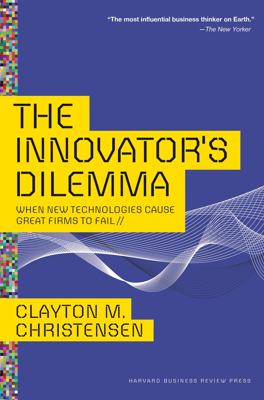The Dilemmas of Innovation: A Summary
Insights on Managing Innovation
No Simple Solution
- Better management or harder work is not the solution to the innovator’s dilemma.
- Many capable executives in successful companies have led their firms to failure despite using top managerial techniques.
Capabilities and Conditions
- Successful companies should not discard capabilities and practices that work for sustaining innovations.
- These capabilities are valuable in specific conditions but may not work with disruptive technologies.
Simple and Useful Insights
Market Progress Pace vs. Technology
- The pace of technological progress may outstrip what markets demand or can absorb.
- Products seemingly useless today may address future needs; customers cannot always lead companies toward necessary innovations.
Resource Allocation
- Innovation success depends on resource allocation.
- Often, executives' decisions are implemented based on existing company wisdom and intuition tuned to the mainstream value network.
Market vs. Technology
- Successful companies can handle sustaining technologies by meeting mainstream customer needs.
- Attempting to force disruptive technology to fit mainstream market needs typically results in failure.
- Disruptive technology should be approached as a marketing challenge.
Understanding Organizational Capabilities
Specialized and Context-Specific Capabilities
- Organizational capabilities are formed within value networks and are highly context-specific.
- Companies have specialized abilities in certain markets while facing disabilities in others.
Information and Investment
- Often, necessary information for decisive investments in disruptive technologies does not exist.
- The process requires fast, flexible experiments and a tolerance for failure and iterative learning.
Strategic Postures
Leading vs. Following
- Different strategies are needed for disruptive versus sustaining technologies.
- Disruptive innovations benefit from first-mover advantages, while sustaining innovations often do well from incremental improvements.
Barriers to Entry and Mobility
- Established companies face significant barriers due to conventional managerial wisdom.
- This wisdom, while an asset, can prevent them from pursuing disruptive technologies effectively.
Overcoming Innovator’s Dilemmas
- Managers need to understand the intrinsic conflicts posed by sustaining and disruptive technologies.
- Creating a context aligning each organization’s capabilities with market and customer demands is crucial for handling both types of innovation successfully.
Practical Examples and Frameworks
Insights and Models
- Trajectory maps help analyze market conditions and technological impacts.
- Various case studies illustrate the principles of managing disruptive technologies effectively.
Conclusion
- The research indicates that overcoming the innovator’s dilemma requires nuanced strategies and a deep understanding of organizational capabilities, resource allocation processes, and market dynamics.
- The goal is to align organizational structures and practices with the needs of both sustaining and disruptive innovations.
